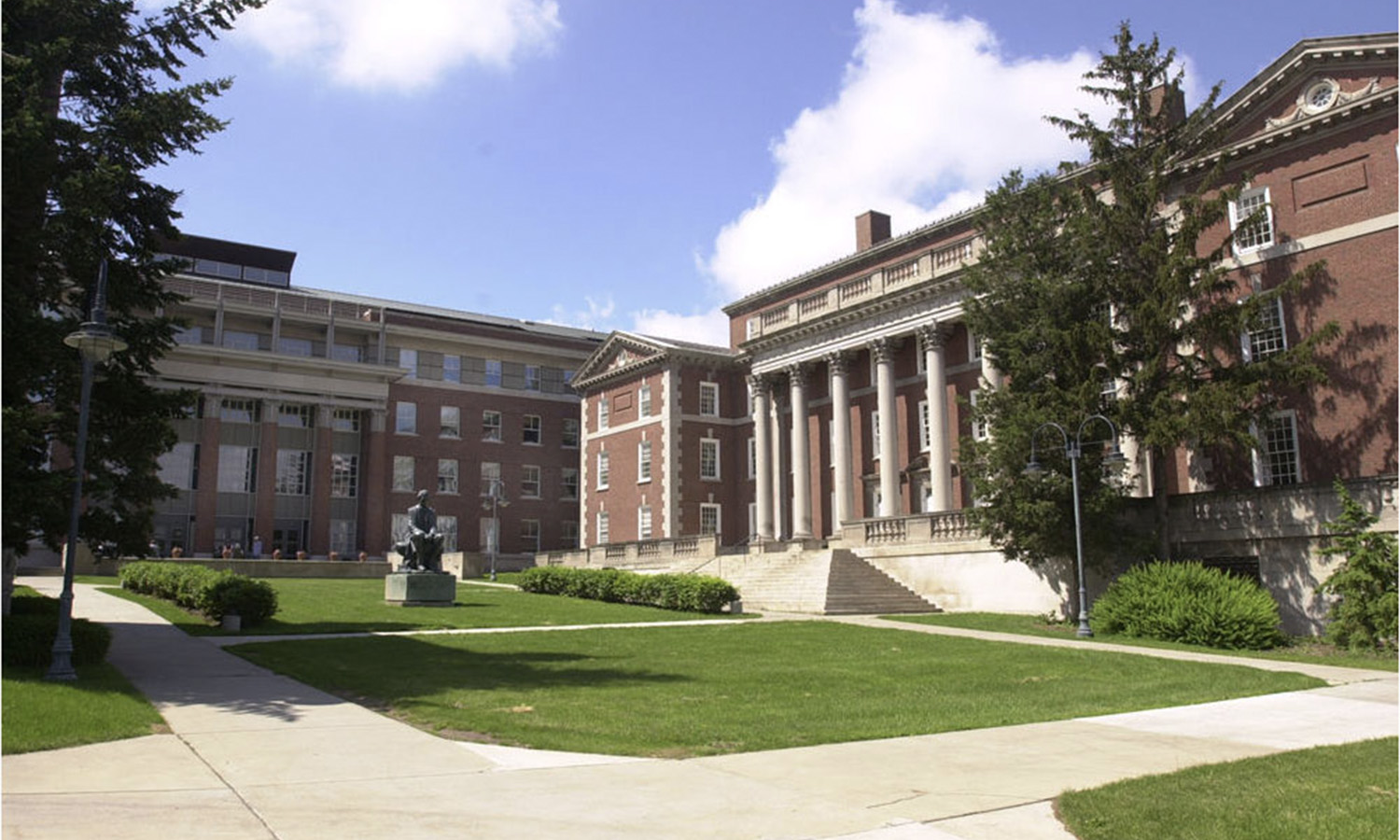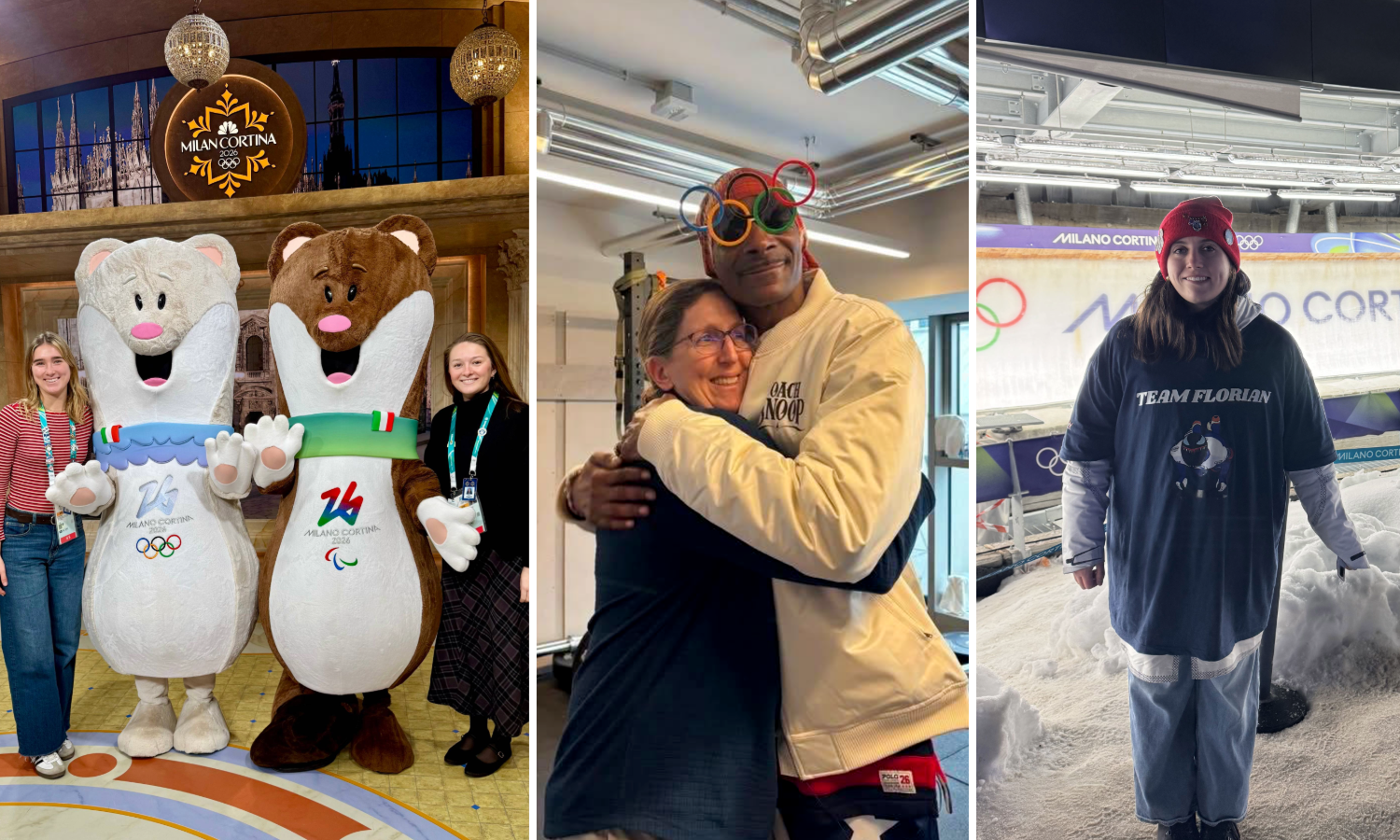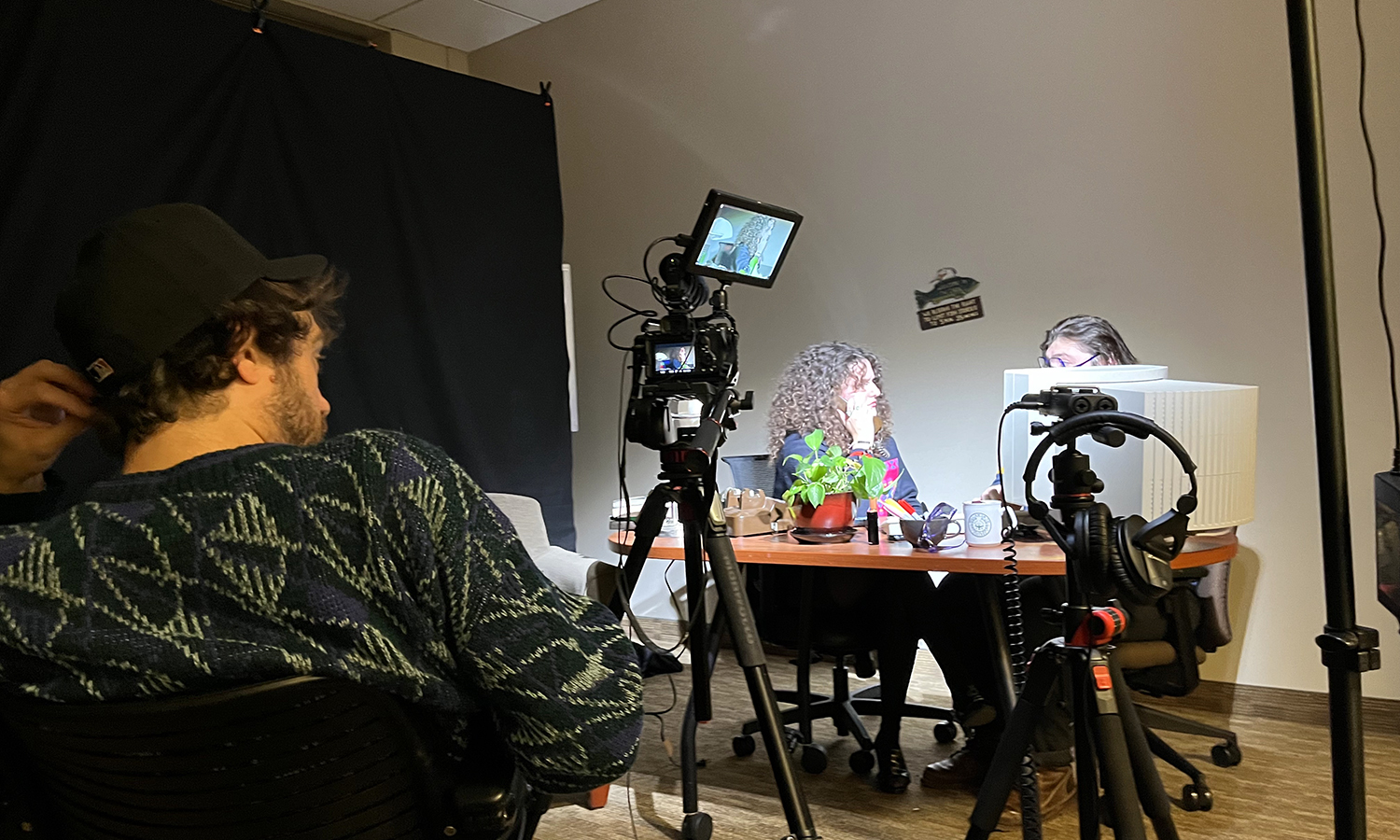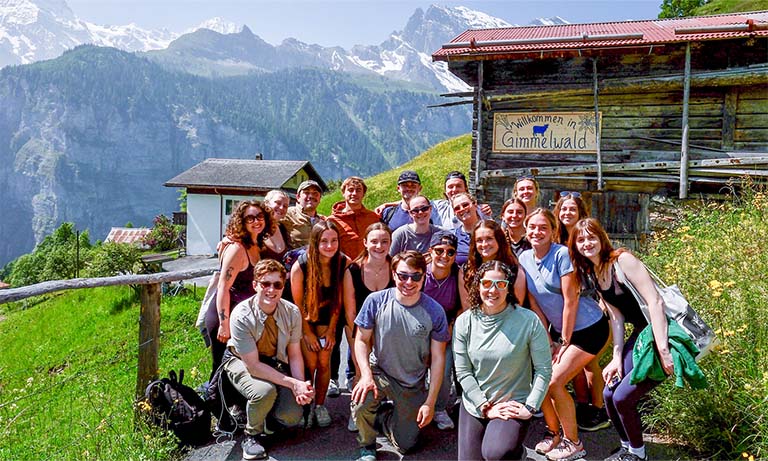
HWS News
10 July 2025 In Germany's Eco-Capital, Students Learn to Tell the Climate Story
In the Black Forest, students tune into nature and craft stories about a more sustainable future.
In May, 20 HWS students departed Geneva, N.Y., to study in Freiburg, Germany, located in the fertile and picturesque Upper Rhine River Plain. Known as Europe’s “Green Capital,” Freiburg’s eco-friendly practices broadened students’ understanding of the global climate crisis while hands-on projects honed their skills in sound recording and audio editing.
Offered through the Center for Global Education, the short-term program drew students from across disciplines. Assistant Professor of Media and Society Jiangtao Harry Gu ’13, who led the program, highlighted the broad range of majors that participated in the program, including Media and Society, Environmental Studies, Physics and Mathematics.
“It is a wonderful testament to the liberal arts and sciences tradition at HWS, but it also speaks to the spirit to engage these disciplines to solve the most pressing challenges of the 21st century,” Gu explains.
Physics major Ryan Jackson ’28 says this experience allowed him to explore his interest in the sciences while being abroad. “I have always wanted to visit Germany, and climate change is a topic I find fascinating but have not yet explored deeply,” he explains.
The program, titled “Sounding Climate Change,” reflects Gu’s ambitious, multi-pronged curricular vision. Using Freiburg as a case study, students explored how climate change shapes ecological, social and political landscapes—all while learning foundational techniques in sound and documentary storytelling.
Nestled on the edge of the Black Forest, Freiburg blends the region’s rich history with notable innovations in sustainability. Back on campus, students remark that the Upper Rhine landscape strongly reminds them of the Finger Lakes. The students were spot on when connecting the two—it’s no coincidence that they share some similarities. German and Swiss immigrants played a significant role in shaping the Finger Lakes region, especially in areas of farming and viticulture.
Freiburg
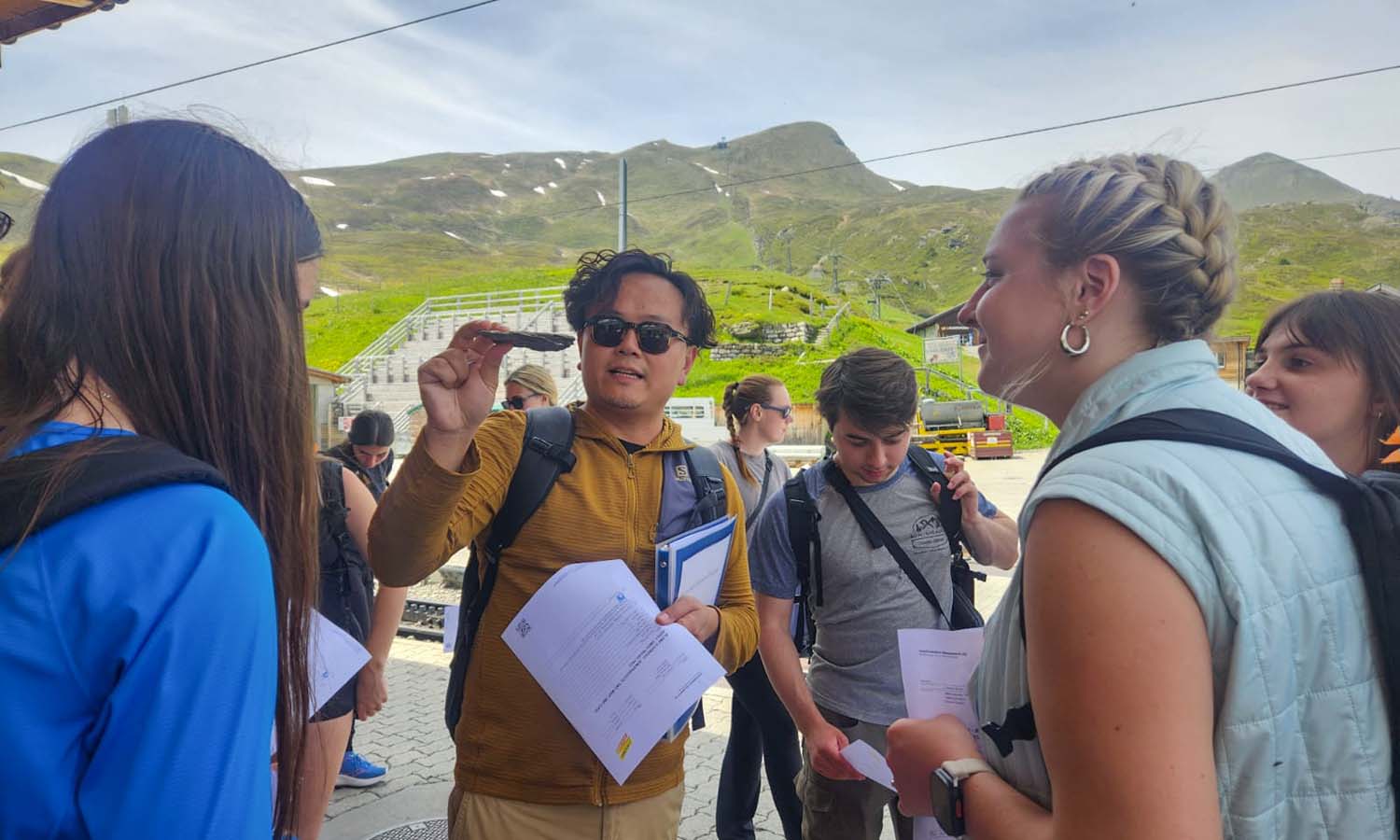
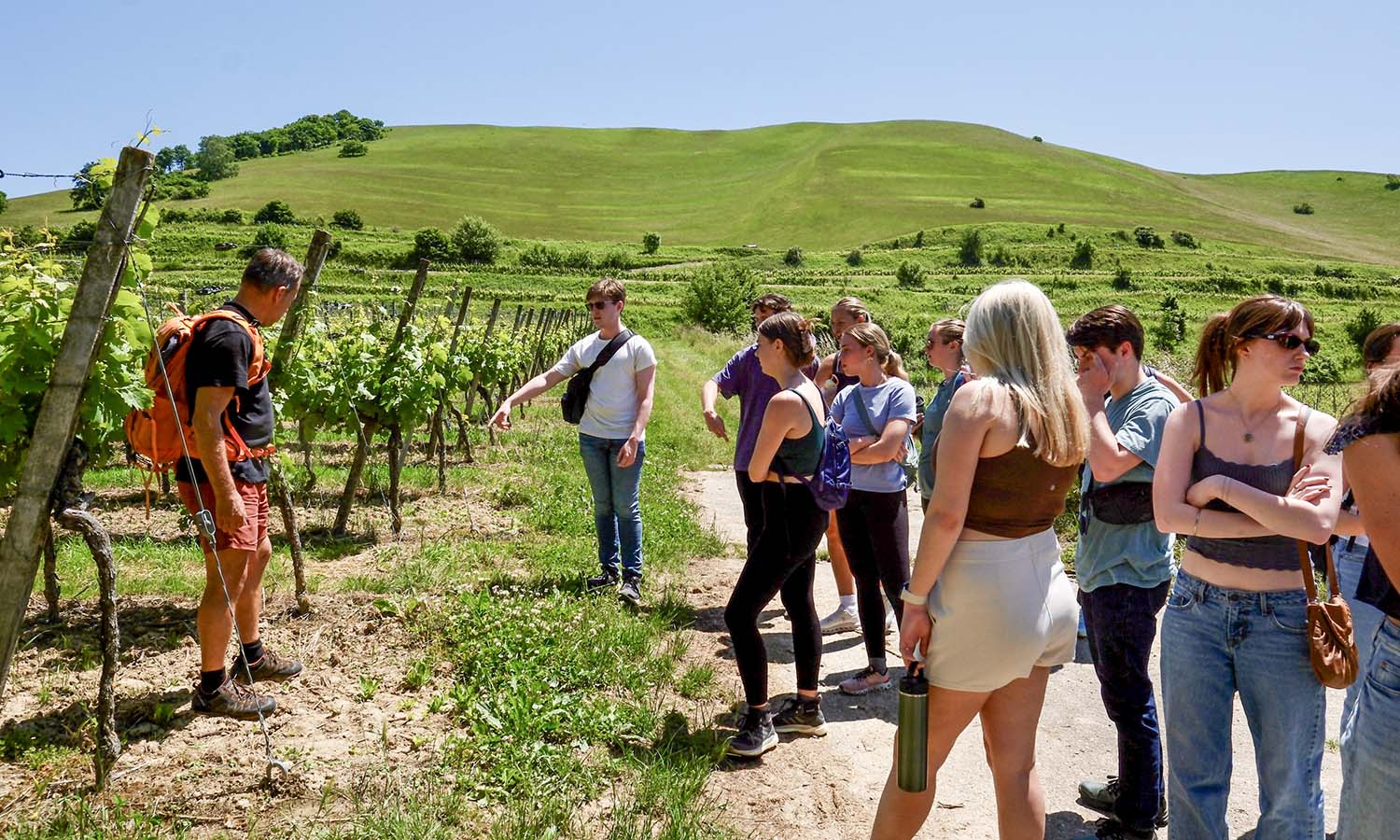
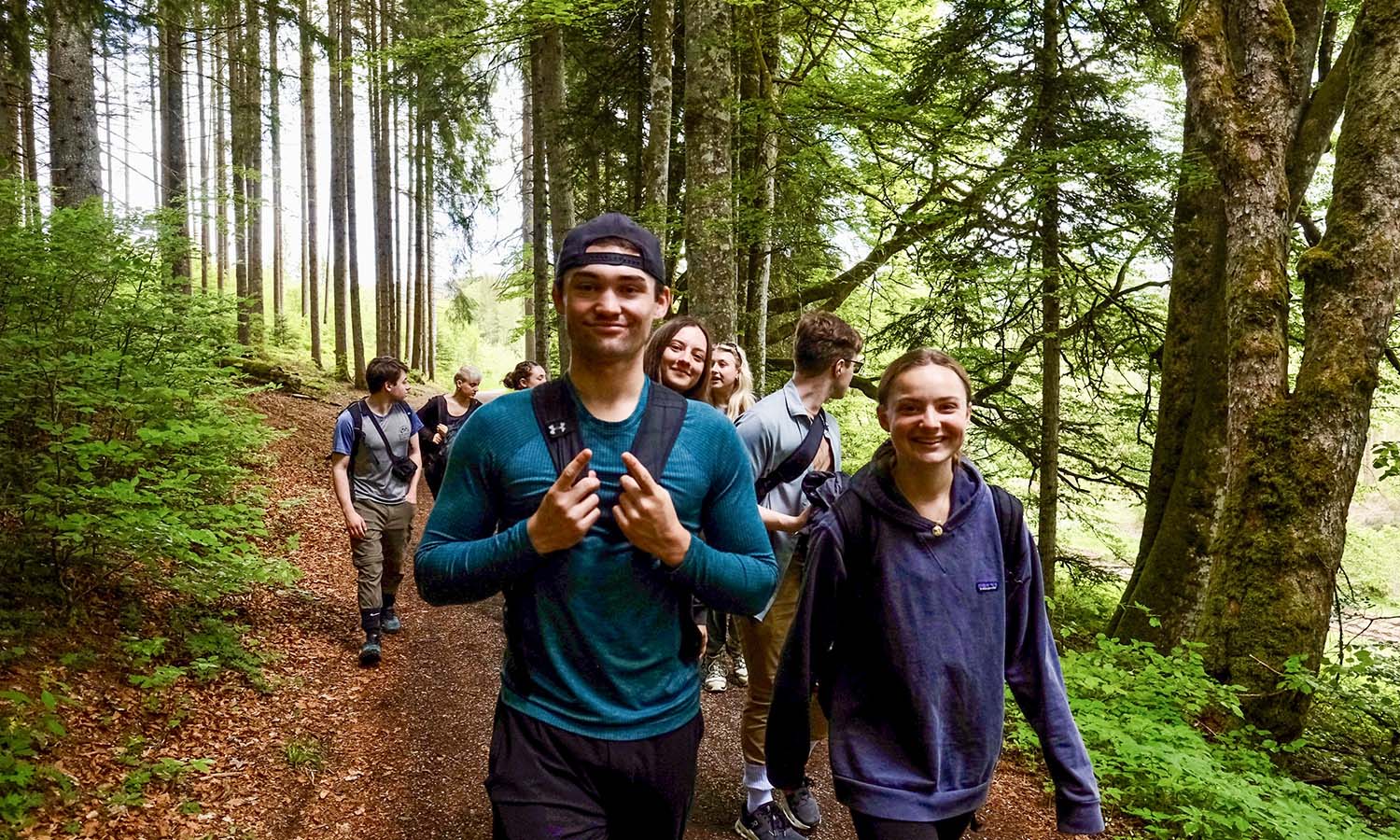
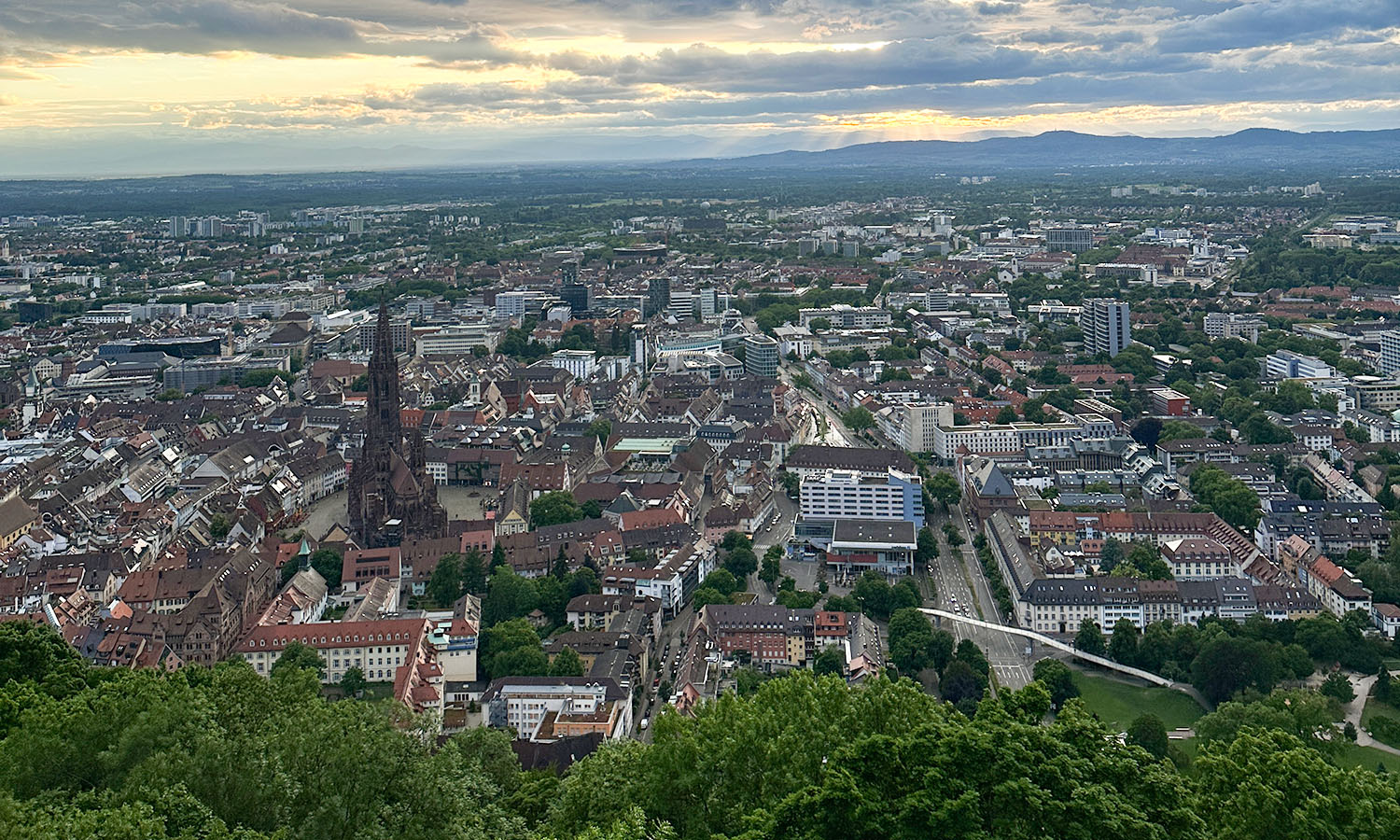
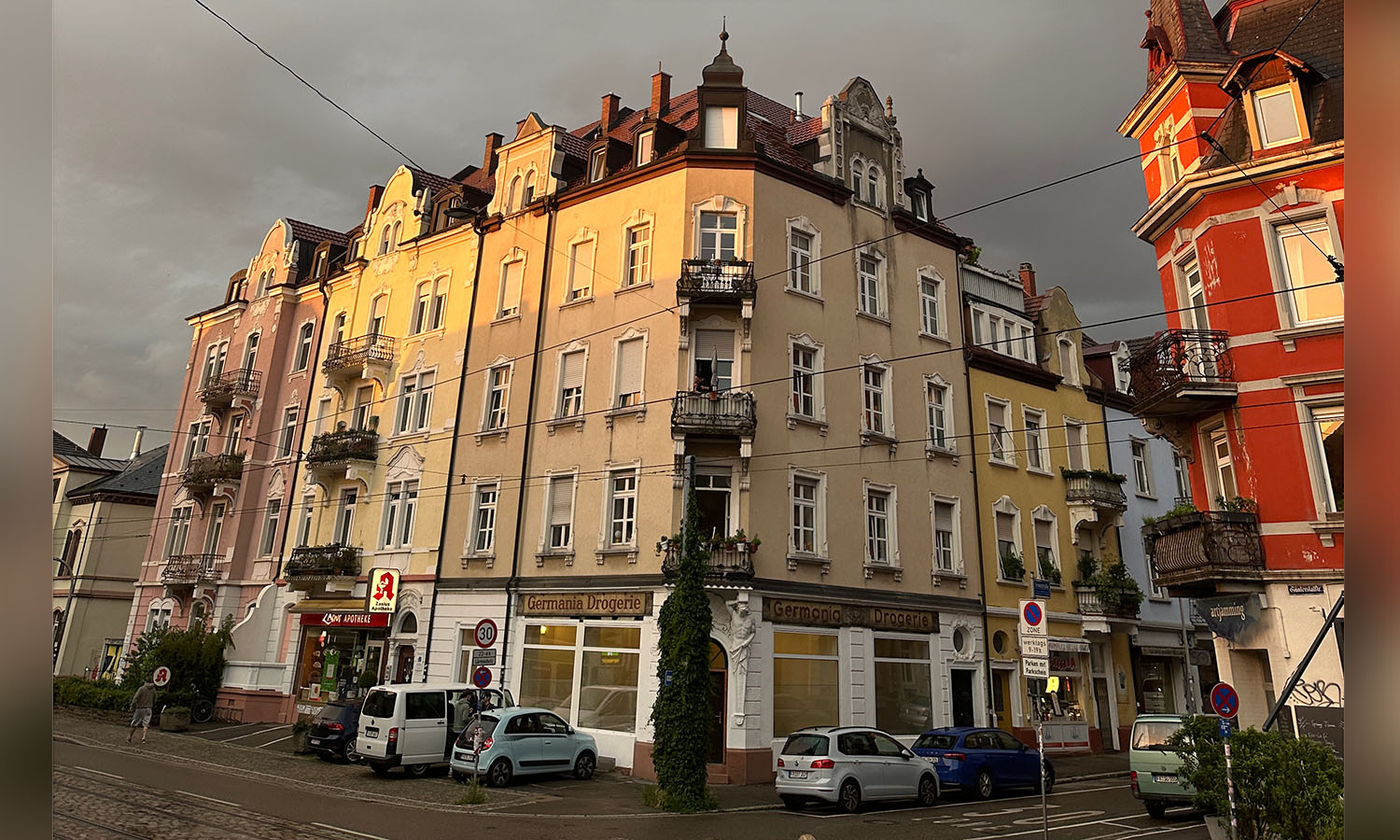
In the late-19th century, German immigrants settled throughout upstate New York, particularly in Geneva, where they established farms and built homes reminiscent of those they had left behind.
As part of their coursework, students completed a series of immersive, community-based projects. Gu explains he built the program’s assignments on two premises: first, that “climate change is a fact.” And second, that “climate change is a global phenomenon, so it has to have global solutions.”
Gu understands that to grasp the vast impacts of the climate crisis, students must see how a city like Freiburg actively combats it. In doing so, the group visited upcycled fashion stores, toured local cattle and cheese farms, and met with Freiburg specialists to understand how environmental policies take shape at the community level.
One key project asked students to record a snapshot of the acoustic environment, capturing Freiburg and the Black Forest through sounds like birdsong, wind and urban noise. “The assignment urges students to tell a story without words,” Gu says.
Later, students conducted interviews with residents and local experts, building skills in research, communication and listening. They learned how to manage time effectively, ask thoughtful, well-crafted questions and create a comfortable environment for their interviewees.
Based on his interest in physics, Jackson’s project asked if we could hear the sound of the climate changing. In Freiburg, he interviewed experts in the field of Acoustic ecology, which is the discipline that uses sound to study the relationship between humans and their environments. He collected extensive data from various environments and will spend the rest of the summer examining them.
Gu says after three short weeks, students gained far more than a change of scenery in Freiburg. They engaged deeply with the realities of global climate change while developing practical skills in media production and storytelling. He also notes the experience reinforces HWS students' responsibility as global citizens, and now, when they stroll down the Finger Lakes, it is a quiet, visual reminder of their meaningful time abroad.

